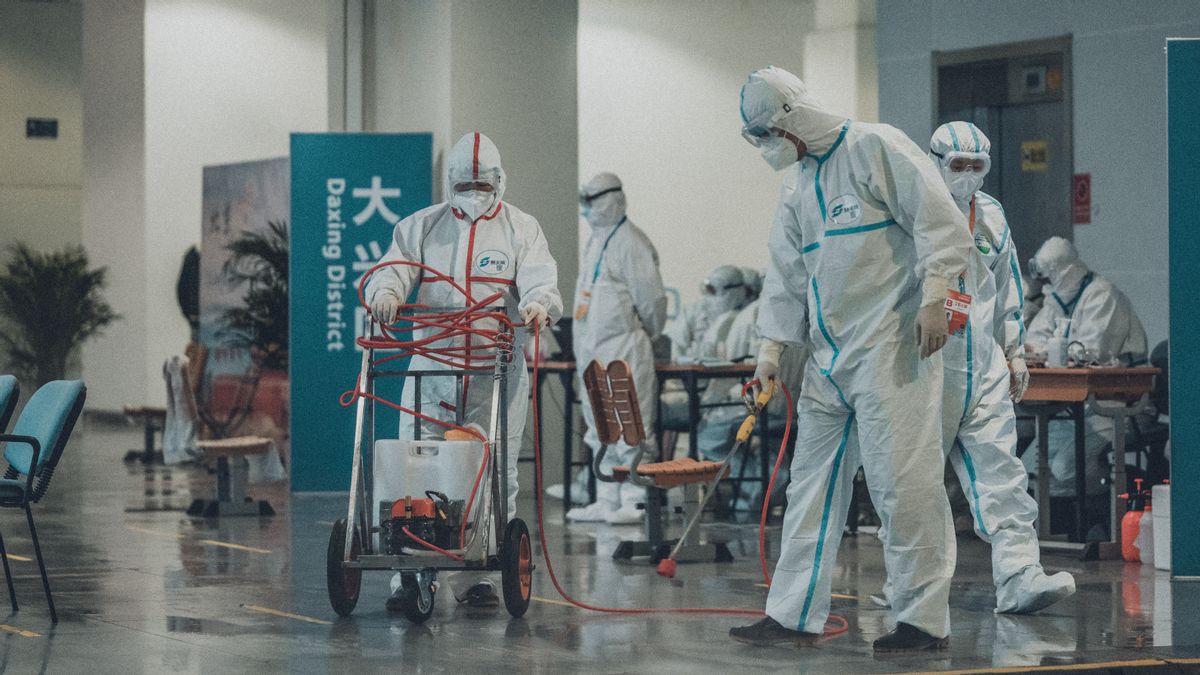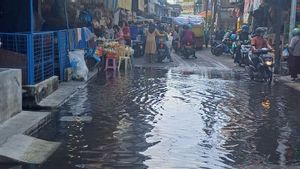JAKARTA - Not all families of the victims of the COVID-19 pandemic in China can visit the grave of the deceased. In Wuhan - the center of the spread of the corona virus - families are not even allowed to mourn. What is even more sad is that it is suspected that there are still thousands of bodies whose forests are not clear. The question is, is it true that the Chinese government "eliminates" the death toll from the real?
In China, the tradition of "burial pilgrimage" or visiting the graves of their relatives or ancestors on the 15th day of the spring equinox dates back thousands of years. During the ritual, they usually clean the grass or dirt that is there, while offering food, wine, and paper money, so that their predecessors can enjoy the afterlife.
The moment to visit the graves or what they call the "ritual sweeping the graves" this year is likely to be quieter than in previous years, even though there have been many deaths due to the recent coronavirus pandemic. This is because, as reported by The Washington Post, thousands of bodies, especially those from the epicenter of the outbreak, Wuhan, cannot be buried.
Not to mention that there is a ban on gathering from the authorities concerned that the corona virus outbreak is still spreading. What is even more sad is that there are still families who admit that they have not received any news where the bodies of their families who died due to COVID-19 are located.

"Nobody in the family could say goodbye to their grandfather and even see his face one last time," said Gao Yingwei, an IT worker in Wuhan whose grandfather, Gao Shixu, died of COVID-19 on February 7.
The deceased, who died at the age of 76, died at home. Funeral officials came to evacuate the body, dressed in full hazmat clothes, notifying that the body would soon be cremated.
"To this day, we don't know how the remains were handled, where the ashes are, or when we can collect them," said Gao. "I don't even know which funeral home those people came from."
The feeling of anxiety increases when the ritual of sweeping the graves is very limited, considering that social distancing or physical distancing is required, so that people are prohibited from gathering by the state authorities.
In Wuhan, the City Government has completely banned "grave sweeping" activities until at least May. The ritual can still be done in Beijing and Shanghai, but the number of visitors is very limited, and they have to wait for the registration queue first.
The death toll is thought to be 15 times higher
The corona virus pandemic was officially recorded to have claimed 2,563 lives in Wuhan. But there is new evidence emerging as Wuhan begins to rise, pointing to the actual death toll being exponentially higher. This can be seen from the large number of bodies collecting. According to Caixin magazine records, the Hankou Crematorium has been operating 19 hours a day. According to the records, in just two days, the funeral home could process five thousand urns of cremation ashes.
In Wuhan itself, it was noted that the funeral home there had processed 3,500 urns per day since March 23. That number implies the death toll in Wuhan could reach around 42,000 or 15 times the officially announced number.
Wuhan residents say the activities at the funeral home may well have betrayed official government statistics. "Since incinerators - cremation centers - work around the clock, how come so few people die?" a man, known only to his last name Zhang, told Radio Free Asia.
This allegation had previously been made by the US Intelligence Agency (CIA). They concluded that the number of deaths from COVID-19 in China was much lower than it actually was.
However, Chinese Foreign Ministry spokesman Hua Chunying said on Thursday that China had been open and transparent about the coronavirus outbreak. Instead, the Chinese foreign minister accused US officials of making shameless statements because they had doubts about Beijing's tally.
The English, Chinese, Japanese, Arabic, and French versions are automatically generated by the AI. So there may still be inaccuracies in translating, please always see Indonesian as our main language. (system supported by DigitalSiber.id)









